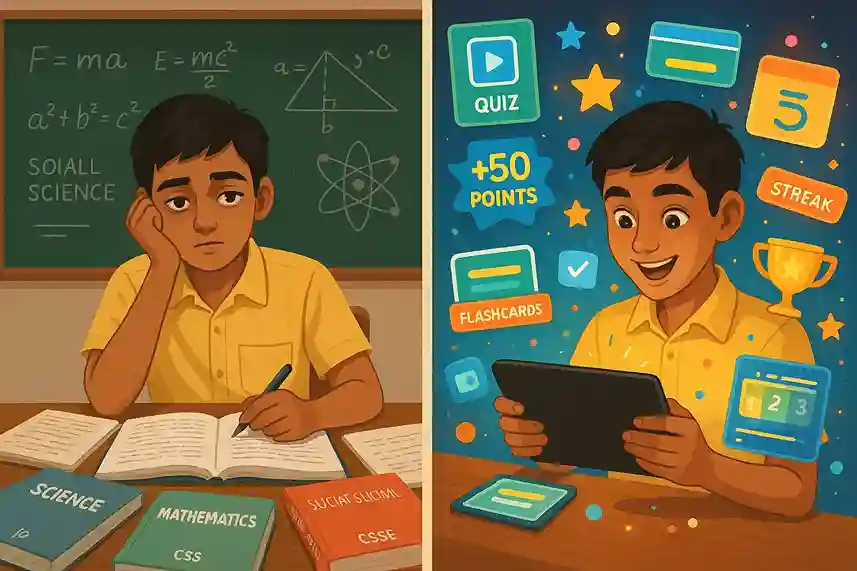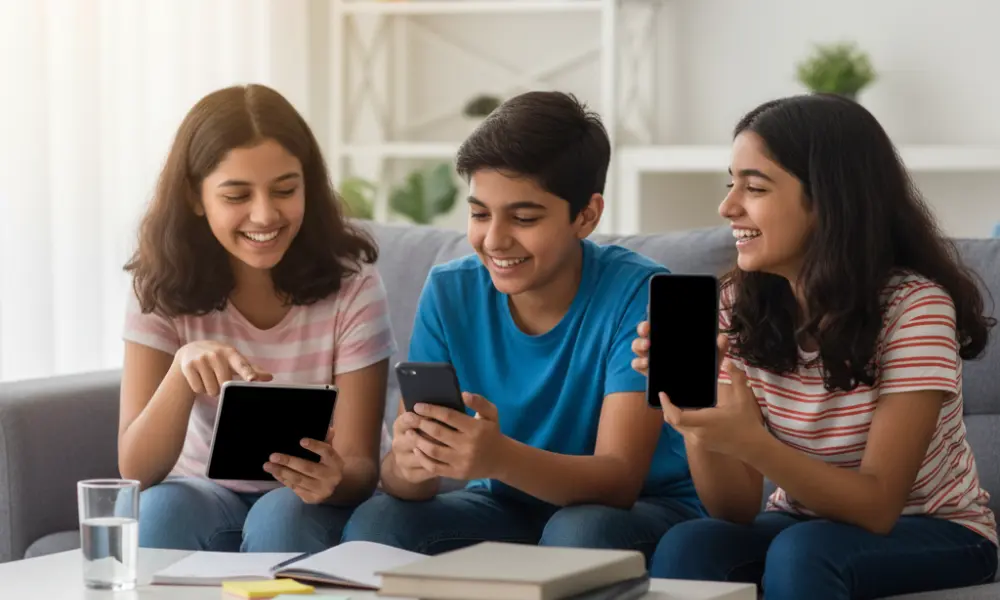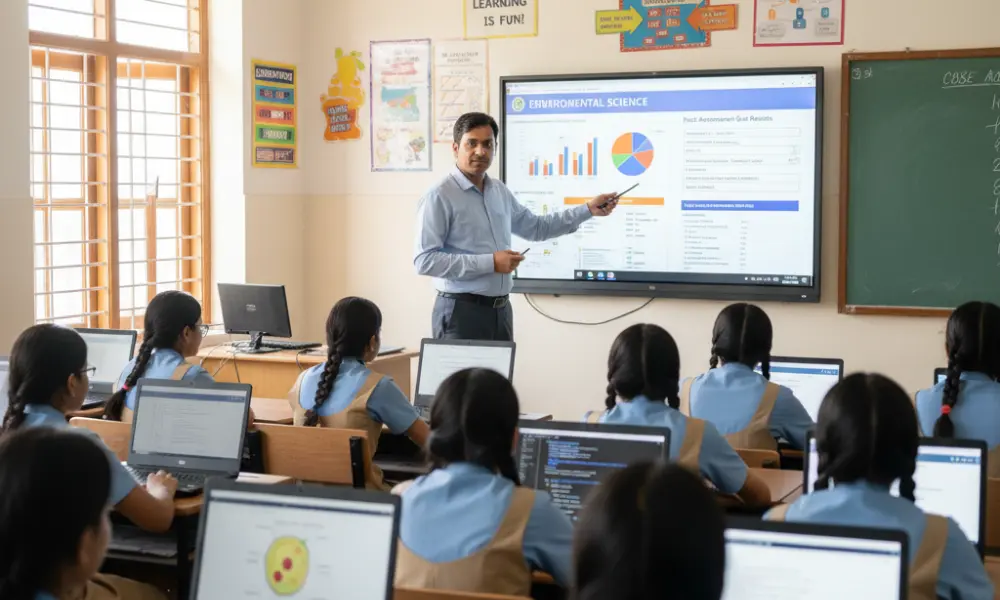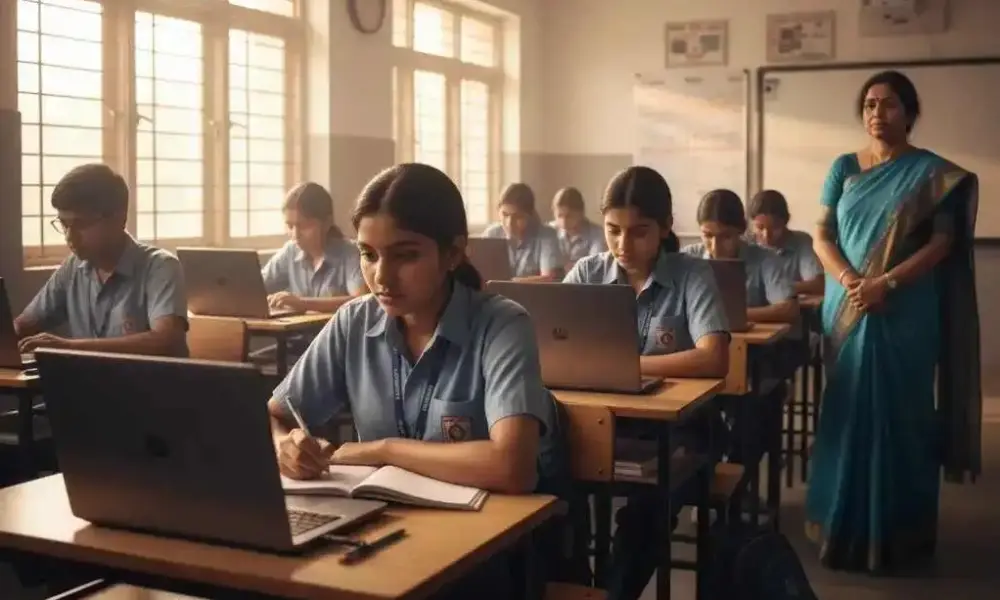Gamification vs Traditional Studying: Which Works Better for CBSE Students?
Exploring whether gamified learning or traditional studying benefits CBSE students more
This blog compares gamified learning with traditional studying methods for CBSE students. It explains the psychological impact of gamification, showcases student experiences, weighs pros and cons of both methods, and suggests how to balance them for better results.

Understanding traditional studying methods
For decades, CBSE students have relied on conventional approaches such as textbooks, note-taking, teacher-led explanations, and practice through sample papers. These methods emphasize repetition, memorization, and structured learning. The traditional approach provides clear academic direction but often lacks engagement, especially when students feel overwhelmed by the volume of content in Classes 9 to 12.
Parents often appreciate the predictability of traditional study habits since they mirror their own schooling experiences. However, the growing demand for innovative approaches has highlighted gaps in motivation, stress management, and adaptability among students.
What gamification in education means
Gamification applies elements of game design to learning. This includes points, badges, leaderboards, streaks, and interactive challenges. Platforms like Edzy have introduced gamified modules tailored to CBSE syllabi, where students can earn XP, unlock levels, and challenge peers while studying chapters or practicing questions.
Gamified learning is not just about making study fun. It builds intrinsic motivation by rewarding consistency, encouraging healthy competition, and personalizing the pace of learning. For example, a student revising NCERT Class 10 Science can gain points for completing flashcards, instantly reinforcing knowledge through micro-rewards.
Psychological impact of gamification
Research in educational psychology shows that gamification stimulates the brain’s reward system. Dopamine release during achievement milestones makes students more likely to stay engaged and retain information. CBSE students preparing for board exams often struggle with burnout and distractions. Gamification introduces a sense of progress and control, which can reduce exam stress.
“When learning feels like progress in a game, students are less afraid of failure and more willing to attempt challenging problems.”
Gamified platforms also encourage self-directed learning. Unlike rote memorization, which can create anxiety, interactive rewards shift focus from fear of marks to love for mastery.
Case studies from CBSE students
Take Riya, a Class 10 student in Delhi. She used to find Social Science monotonous. After switching to a gamified platform, she started completing daily streaks of quizzes, earning badges for consistency. Her engagement improved, and her test scores rose from 65% to 80% within a term.
Similarly, Aarav, a Class 9 student, enjoyed competing with friends in math challenges. Solving quadratic equations became less intimidating because the leaderboard encouraged friendly rivalry. These real-life experiences highlight how gamification addresses motivation gaps that traditional studying struggles to fill.
Pros and cons of gamified vs traditional methods
Strengths of traditional studying
Provides structured curriculum coverage
Aligns directly with teacher-led classroom instruction
Encourages discipline and routine
Weaknesses of traditional studying
Can feel monotonous and lead to disinterest
Overemphasis on memorization rather than understanding
May not adapt to different learning speeds
Strengths of gamified learning
Boosts motivation and focus through rewards
Personalizes pace and difficulty
Makes repetitive practice more engaging
Weaknesses of gamified learning
Risk of over-dependence on external rewards
Requires digital access and stable internet
May distract if not balanced with focused study sessions
How to balance both approaches
The key for CBSE students is not choosing one over the other but blending both. Traditional studying provides depth and alignment with exam patterns, while gamification ensures consistent practice and reduces study fatigue. For instance, a student can study NCERT chapters using textbooks, then reinforce the learning with gamified flashcards or quizzes.
Parents can encourage balance by setting study routines where traditional reading is followed by gamified revision. Teachers can also integrate both approaches by assigning NCERT textbook exercises and supplementing them with Edzy’s gamified quizzes for homework.
Subject-wise application of gamification
Gamification works differently across subjects:
Mathematics: Time-bound challenges and streaks build problem-solving speed.
Science: Interactive quizzes and flashcards help memorize formulas and processes.
English: Vocabulary games and comprehension challenges make language practice engaging.
Social Science: Timeline-based quizzes and map-based games encourage better recall.
Future of learning for CBSE students
The future of CBSE education lies in integrating gamified and traditional learning. As NEP 2020 emphasizes holistic and competency-based education, gamified platforms like Edzy are becoming more relevant. Students will continue to need strong conceptual grounding from textbooks, but gamification will add the motivation and adaptability that modern learners crave.
Ultimately, the question is not whether gamification is better than traditional studying, but how both can work together. By blending structure with engagement, CBSE students can achieve stronger results and more enjoyable learning experiences.
Suggested blogs

Best Learning Apps and Websites for CBSE Students in 2025
Explore the top digital resources for CBSE students in 2025

AI and the Future of Homework: How Learning is Changing
Exploring how AI is reshaping homework and learning for students.

Chatbots, AI Tutors, and Beyond: The Future of Smart Classrooms in CBSE Schools
Exploring the transformative role of AI in CBSE education

The Future of CBSE Examinations – AI, Adaptive Testing, and What Lies Ahead
How AI and adaptive testing could reshape CBSE exams for future-ready students
